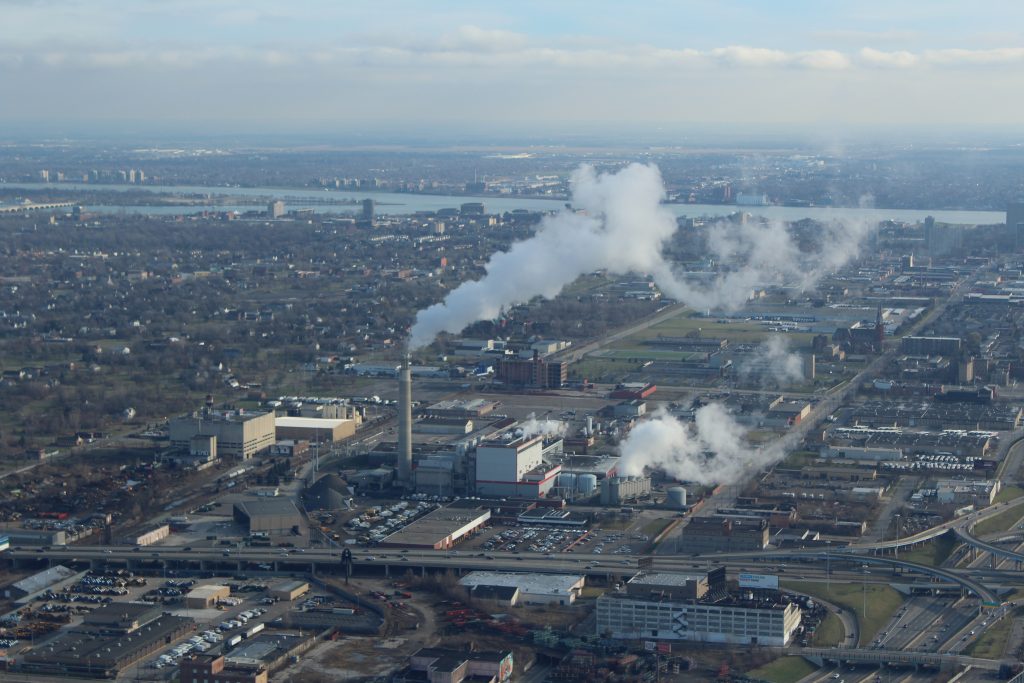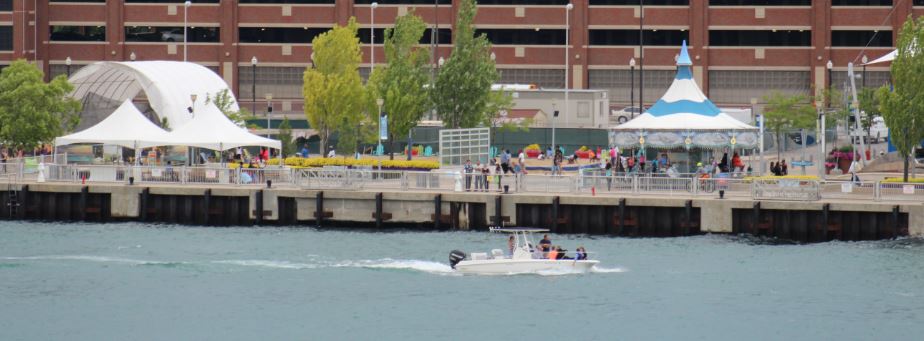Justice for All…Where the Environment is Concerned
Michigan’s biggest environmental issues are also social justice concerns.

Pollution knows no boundaries.
“It’s important to understand that if it’s bothering Detroit, it’s also bothering Romulus, Michigan, it’s bothering downriver Michigan, and it’s not that far away from bothering you particularly if the state does not develop strong pollution control measures that really rein in a lot of the dangerous and toxic pollutants that are killing people,” says Kimberly Hill Knott, director of policy at Detroiters Working for Environmental Justice and active with the Detroit Climate Action Collaborative.

Hill Knott appeared at WDET’s event earlier this fall, “Our Environment, Our Waterways” held at the Grosse Pointe War Memorial. She was onstage with Khalil Ligon, southeast Michigan outreach coordinator at the Alliance for the Great Lakes, an agency involved with policy advocacy, stewardship and education.
Together, with hosts Sandra Svoboda, from WDET, and Dave Spratt, CEO with the Institute for Journalism and Natural Resources, Hill Knott and Ligon discussed some of Detroit’s top environment issues.
The city, they agree, has a unique opportunity in the post-bankruptcy era with the renewed emphasis on planning and economic development initiatives.
“When we talk about the resurgence of the city of Detroit, you cannot have a sustainable city without really dealing with the environmental challenges that have plagued this city for too long,” Hill Knott says.
Having the state’s two most polluted zip codes located in the city is akin to a “demand” that city leaders work on environmental issues, she says, particularly as they relate to the health of minority or poor communities. The environment IS a social justice issue that will likely get worse as weather events become more severe, for example.
“Although the focus on green infrastructure is important, if it is not tied directly to climate change, that is certainly problematic,” Hill Knott says. “You really cannot properly plan without understanding the future projections.”
But the city should not work alone, Ligon says. Regional cooperation must be part of the effort as well as the inclusion of citizens in the policy process.
“It’s important to engage every day people in these topics, A lot of times they feel very disconnected from these bigger picture issues,” Ligon says. “When you have these very important but sensationalized topics that come up … it kind of tilts the message and I think can become a distraction.”

What does Ligon see as one of the Detroit environmental success stories?
“The work that’s happening to re-open the riverfront from its post-industrial history and get us back engaged with the waterfront, knowing that’s part of the Great Lakes system,” Ligon says. “Detroit is a Great Lakes city, these Great Lakes regional issues are important to us.”
Click on the audio above to hear the conversation.
